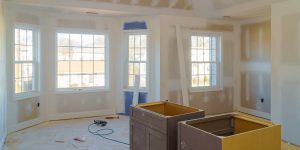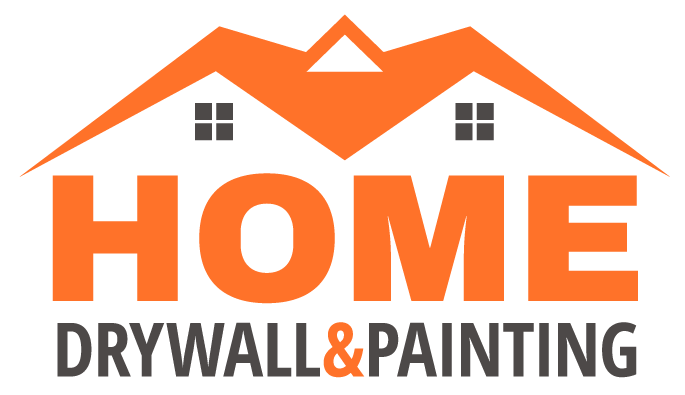
Drywall is one of the most common building materials in the world. It’s a type of plasterboard made from gypsum and can be used to create walls and ceilings, among other things. Most people don’t realize that drywall is quite sturdy and durable when it’s properly installed—but even properly installed drywall can become damaged over time due to wear or water damage. Fortunately, it’s pretty easy to repair small cracks in your drywall using basic tools like spackling compound. However, major structural damages may require more extensive repairs like replacing an entire section of Sheetrock instead of just patching up a few holes. You can contact your local drywall expert to find out more about their drywall repair services. Denver Colorado Drywall Repair
Patching the Hole
It’s a good idea to apply a drywall patching kit over any holes, especially if it’s in an area that isn’t easily seen. This will prevent your wall from looking like Swiss cheese and can help improve its structural integrity. Drywall patching kits are simple and easy to use. Drywall is a very common material for home construction, so you’re likely to find these kits at most hardware stores. These kits usually include a variety of different-sized patches, which allows you to repair holes from small to large with ease. They also come with textures that can match the existing wall texture if desired; this gives your repaired wall an almost seamless appearance.
To apply the patch use a putty knife or similar tool to apply the patch over the hole. Make sure you keep it smooth and even so that you don’t create any bumps on your drywall surface. If you’re applying multiple patches throughout your home, make sure they’re evenly spaced apart by checking with a leveler every few inches along your wall. You should also check above and below where each one should go. This ensures that there won’t be any gaps between them when everything is finished!
Some drywall patching kits include only one type of material, while others may offer two or more options for your convenience in choosing what works best for your project. The type of material included in these kits varies depending on which company produces them; some companies will offer only their brand while others may provide materials by other manufacturers as well.
Replacing a Whole Wall
If you need to replace a whole wall or several damaged panels, your contractor will remove the damaged drywall and prepare the wall for a new installation. He or she will also install new drywall and finish the job by applying texture to the surface of the new sheets with a trowel.
After applying texture, your contractor might sand down any rough spots using an electric sander (or hand-sanding if necessary). Once all repairs have been made and taped seams have been smoothed out, it’s time for final touches like painting or wallpapering.
In some situations, it’s more cost-effective for you to have your contractor build an entirely new wall than it is to repair the existing one. If your home has suffered extensive damage due to water damage or other issues, the drywall contractor may be able to help you design a brand-new space that meets your needs better than the original layout did.
Replacing Loose Drywall Screws
Loose screws are a common occurrence in the drywall industry, but they can be a sign of a bigger problem. If you notice that some of your drywall screws are loose, it’s important to investigate further and make sure nothing else is off-kilter.
Loose screws may cause further damage to your home if they’re left unattended. They can also be dangerous, especially if they’re near an electrical outlet or light switch. Loosening the screw could compromise safety by allowing electricity to escape through the hole where the wiring attaches to the wall or ceiling. Loose drywall screws will also cause sagging in your walls as time passes.
Drywall Anchors
When you’re hanging heavy objects from drywall, it’s important to secure them with a proper anchor. These specialized fasteners have the strength to hold up your heaviest items without compromising the integrity of the wall.
There are two main types of drywall anchors: plastic and metal. Metal drywall anchors are commonly made from either steel or aluminum, though some manufacturers use stainless steel as well. The design of each type varies slightly, but they all work in essentially the same way. They’re designed for different applications depending on how heavy an object needs to be secured. If you’re unsure which type is best for your project, consult a professional contractor before making a selection!
In addition to being available in different materials and sizes, there are also several types of drywall anchor designs out there on the market today including screw mounts like toggle bolts that require pre-drilling holes into drywall panels before installation.
Call a Professional Drywall Contractor
There is a lot to consider when it comes to repairing drywall, including the type of damage and the tools you’ll need. If you’re not sure that you have all of the necessary skills or if you are unsure about how best to tackle your project, call a professional drywall contractor. This ensures that your repairs will be done right the first time around and saves time and money in the long run.
Denver Colorado Drywall Repair
We hope this article has been helpful to you. If you have any doubts about your ability to repair your ceiling or walls, please call a professional drywall contractor. You can contact us at Home Drywall and Construction in Denver, Colorado today to find out more about drywall repair services.
